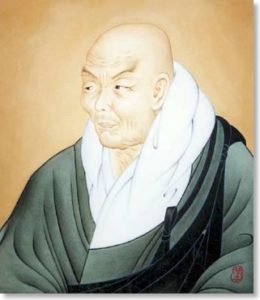About Jodo Shinshu
About Jodo Shinshu

Jodo Shinshu is the teaching of Sakyamuni Buddha as it was handed down through the religious understanding of Shinran Shonin (1173-1262).
In Jodo Shinshu, the object of worship is Amida, the Buddha of Infinite Light and Life. The Primal Vow of Amida Buddha promises Universal Enlightenment for all beings. There is no other vow that has such sweeping power, promising hope and life’s fulfillment to all. Amida’s eternal activity of Wisdom and Compassion will never cease so long as beings are lost, suffering or wandering in a meaningless existence.
From the voluminous Buddhist Tripitaka, Shinran Shonin selected the following three sutras that bring us directly to the heart of Amida Buddha.
- The Larger Sutra on the Eternal Life (Daimuryojukyo). In this sutra, Sakyamuni tells the Sangha about Amida Buddha.
- The Meditation Sutra on the Eternal Buddha (Kammuryojukyo). This sutra shows the actual case of a woman who finds salvation through Amida Buddha.
- The Smaller Sutra on Amida Buddha (Amidakyo). This sutra describes the beauty of the Pure Land.
The recitation of the Nembutsu – Namu Amida Butsu – the sacred Name of Amida Buddha is vitally important in Jodo Shinshu, for it is the core of Amida’s Vow. Amida Buddha communicates with us through his Name. Its form is twofold: it is Amida’s voice calling to us and at the same time is our vocal response to his call.
Jodo Shinshu regards Faith (Shinjin) as the only and sufficient cause for birth in the Pure Land and attainment of Nirvana. Shinran explained this Faith as the Faith of the Other Power, the Other Power being the Power of Amida’s Vow. From this, the Faith of the Other Power can be understood to mean the Faith bestowed by the Benevolence of Amida’s Vow. This interpretation of faith is the unique characteristic of Shinshu teaching.
Nembutsu, like Faith, is also bestowed by the Other Power or Amida’s Vow. Faith and Nembutsu given by the Other Power keep the followers from being attached to their own merits or power and help them enjoy the life of “Egolessness” and “Naturalness” which are fundamental ideas of Buddhism.
